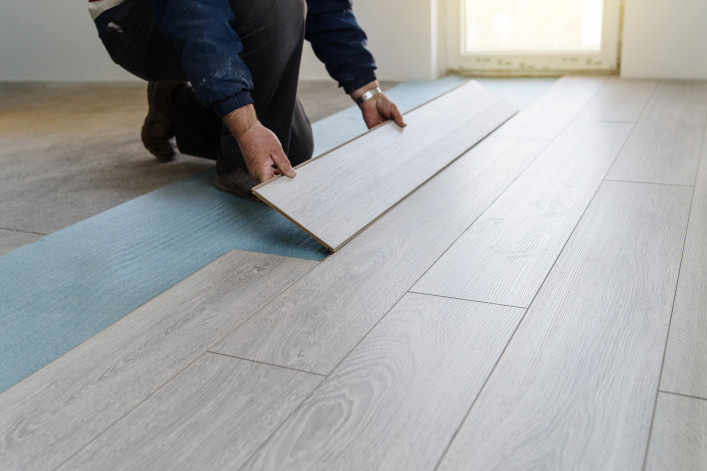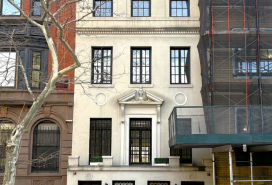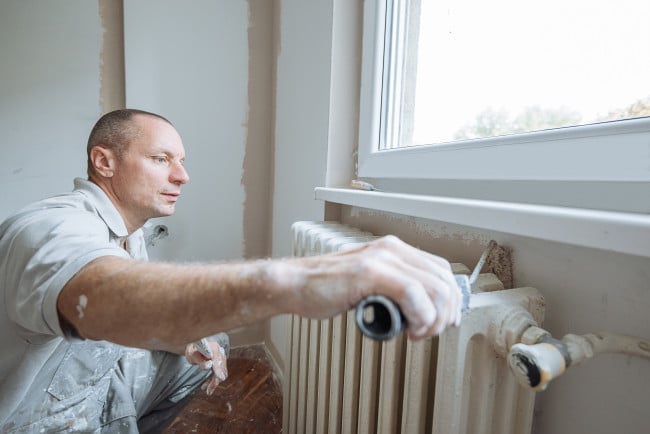Will my maintenance fees go up if I renovate my co-op?

Renovating your apartment won't increase your maintenance fees, but there are other factors that can drive up these monthly charges.
I'm looking to purchase a co-op that needs extensive renovations to enlarge the bathroom and reorganize the kitchen. Can the co-op board raise my monthly maintenance for this?
An apartment renovation won't drive up your maintenance fees, but these monthly charges can periodically increase for other reasons, our experts say.
"Maintenance charges are directly related to the number of shares allocated to an apartment," says Jeffrey Reich, a partner in the law firm of Schwartz Sladkus Reich Greenberg Atlas. "That allocation is not impacted by alterations made to an individual apartment. However, some cooperatives charge alteration fees based on the cost or length of the project."
You'll need board approval for your renovation, and you can run into other inconveniences, like being put on a waitlist to renovate or signing a restrictive alteration agreement.
There is one exception where a co-op renovation could increase your maintenance fees, though: "Different story, of course, if you increase the footprint of the apartment, say, by combining with an adjacent apartment, perhaps incorporating part of the common hallway," says Gordon Roberts, global real estate advisor with Sotheby's International Real Estate. "That would require a decision by the board; clearly you’re absorbing more shares."
And you are likely to see your maintenance fees increase eventually, due to a number of other factors.
"Maintenance increases are triggered by increases in expenses that the building undertakes to pay," says Deanna Kory, a broker with Corcoran. "For example, there are traditional operating expenses, which include the real estate taxes for the building, salaries and benefits due to the building staff, utilities, management, insurance, and repairs. Maintenance increases often happen when one of these or a combination of these costs go up."
A major upgrade to the building—like a new roof—will drive up maintenance fees more than other kinds of repairs, though sometimes these increases are temporary. In other cases, a co-op board could opt for an assessment to finance a substantial renovation to the building, which will mean that for a certain period of time, shareholders pay another monthly fee on top of their maintenance costs.
Well-run co-ops have a reserve fund to cover surprise expenses. You can try to protect yourself from unexpected assessments and major hikes in maintenance by working with a real estate attorney who knows what to look for when reviewing a building's finances.
"If your main concern is a stable monthly maintenance, the due diligence period prior to closing is the best opportunity to examine a co-op’s overhead," Roberts says. He advises that prospective buyers consider factors ranging from amenities to the number of shareholders to the size of the building's mortgage to get a sense of what might drive up maintenance fees. In a typical co-op, it's not unusual for these costs to increase by 1.5 to 2 percent a year, Roberts says.
One expense that is likely to go up over time, regardless of a building's financial standing, is property taxes.
"Real estate taxes almost always go up, and while there is nothing signaling a significant increase so far, they may go up by a certain degree this year to help cover the city deficit," Kory says.
The city and state are facing economic hardship brought on by the coronavirus pandemic, and lawmakers are considering tax hikes to address the deficit. Proposals include raising income taxes on the wealthy and instituting the new pied à terre tax for second homeowners. Earlier this year, the New York City Council released recommendations for property tax reform, though these proposals have been delayed by the pandemic.
For now, it looks like most New York City homeowners will not face major tax increases, but it's worth considering, when you buy, how that might change in the future.
Trouble at home? Get your NYC apartment-dweller questions answered by an expert. Send your questions to [email protected].
For more Ask an Expert questions and answers, click here.
You Might Also Like



























